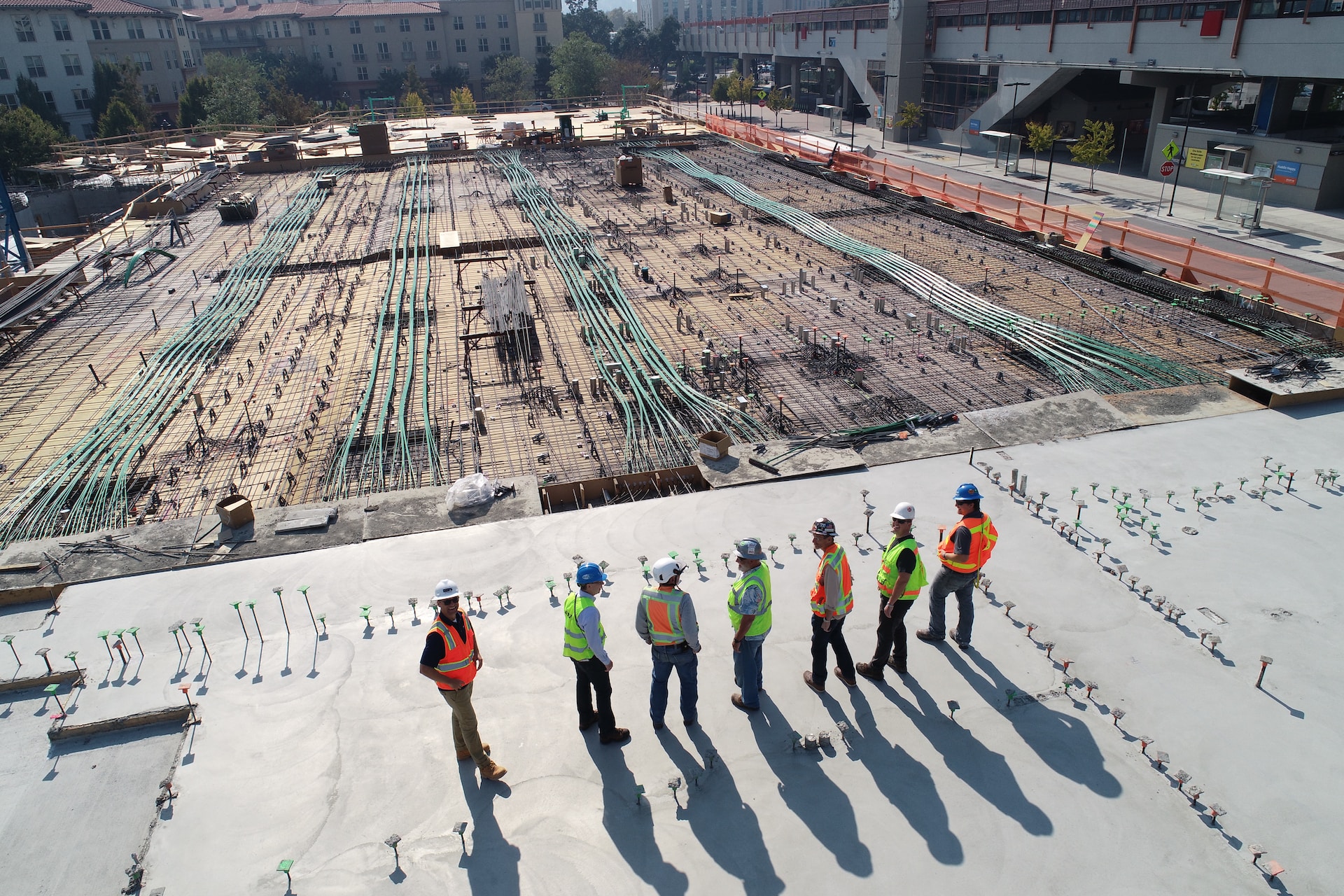Starting a new construction project is an exciting endeavor, but its success hinges on meticulous planning and careful preparation. Whether you’re constructing a dream home, a commercial building, or any other structure, the journey begins long before the first foundation stone is laid. Proper preparation not only ensures a smooth construction process but also helps mitigate any unexpected challenges that may arise along the way.
In this comprehensive guide, we’ll walk you through the essential steps required to prepare effectively for your upcoming construction project. From defining the project’s goals and establishing a feasible budget to navigating the labyrinth of permits and regulations, each stage is a vital piece of the puzzle that contributes to a successful outcome.
We’ll also discuss the intricacies of site selection, architectural planning, contractor selection, and project scheduling, to help you make informed decisions. Whether you’re a seasoned developer or a first-time project owner, these strategies will streamline your project’s inception and execution.
So, let’s dive into the fundamental steps that will set the stage for an efficient construction journey.
1. Defining Project Goals and Objectives
This lays the foundation for a successful construction project. These goals act as a compass, guiding the project’s direction and decisions. You can begin by identifying the project’s purpose, whether it’s creating a sustainable residence or a commercial space.
Then, outline specific objectives, like completing the construction within a certain timeframe or adhering to a budget threshold. Well-defined goals can enhance communication among stakeholders and provide a measurable framework for progress evaluation.
By setting achievable and precise objectives, you will establish a roadmap that aligns everyone’s efforts, ensuring that your construction project remains on track and aligned with your vision.
2. Budgeting and Financial Planning
Budgeting and financial planning are paramount in ensuring the viability of your construction project. It’s essential to create an accurate cost estimation, encompassing materials, labor, permits, and potential contingencies.
Create a comprehensive budget that accounts for all expenditures, while leaving room for unforeseen expenses. With some help from business finance consultants, you can also explore financing options, such as loans or investor partnerships, to secure adequate funds.
A well-structured financial plan not only helps in resource allocation but also prevents overruns and delays. By proactively managing your project’s finances, you can lay the groundwork for a successful construction journey, minimizing financial stress and optimizing the efficient use of your resources.
3. Site Selection and Evaluation
Selecting the optimal construction site involves careful assessment and consideration. Factors like location accessibility, environmental impact, and infrastructure availability play crucial roles in this process.
Make sure to conduct a thorough site evaluation to identify potential challenges like soil conditions, zoning regulations, and utility access. A well-chosen site can significantly impact project efficiency and cost-effectiveness. Additionally, you need to ensure the comfort of your workers by providing site accommodation like eco welfare units as well as other facilities like site toilets and shower stalls.
By analyzing and selecting the right location, you can set the stage for a construction project that harmonizes with its surroundings, maximizes convenience, and minimizes complications throughout the building process.
4. Design and Architectural Planning
To ensure your construction project’s success, you will need professional blueprints. You can collaborate with skilled architects to transform ideas into detailed plans that focus on functionality, aesthetics, and structural integrity.
Thoughtful designs tend to anticipate future needs, which ensures long-term viability. You can incorporate various elements that align with your project’s purpose, whether it’s a residential haven or a commercial hub. Moreover, experts can help fine-tune layouts, materials, and spatial arrangements to optimize resource use and enhance user experience.
Effective architectural planning can translate your vision into reality, guiding construction efforts and fostering a seamless transition from concept to execution. This will result in a built environment that reflects both innovation and practicality.
5. Permitting and Regulatory Compliance
Navigating permitting and regulatory compliance is pivotal in preventing construction hurdles. Compliance ensures safety, environmental sustainability, and legal integrity throughout the project.
That’s why you have to thoroughly research and acquire the necessary permits and approvals to adhere to local building codes and regulations. Make sure to engage with regulatory bodies early to anticipate requirements and timelines. Avoid overlooking permits, as it can lead to costly delays and legal consequences.
By proactively addressing regulatory aspects, you can pave the way for a streamlined construction process, fostering a project that not only meets legal standards but also gains community support and operates within a framework of responsibility.
6. Contractor Selection and Bidding Process
Selecting the right contractor through a meticulous bidding process is essential for your construction project’s success. Make sure to research and gather referrals to identify reputable candidates with relevant experience. Then, invite competitive bids that outline costs, timelines, and project approaches.
Evaluate proposals based on expertise, track record, and alignment with your project’s goals. A well-considered selection ensures a reliable partnership, translating into quality workmanship and effective collaboration.
Additionally, keep in mind that clear communication about expectations and deliverables is crucial. A thoughtful contractor selection process sets the tone for a construction journey marked by professionalism, efficiency, and the fulfillment of your project’s vision.
7. Project Timeline and Scheduling
Crafting a realistic project timeline is pivotal in steering your construction endeavor to success. Start by breaking down the project into phases and allocate timeframes for each. Don’t forget to factor in potential delays and dependencies to create a flexible yet structured schedule.
Effective scheduling aids in resource allocation, labor coordination, and milestone tracking. By regularly reviewing and adjusting the timeline as needed, you can quickly and easily adapt to any unforeseen circumstances.
A well-managed project timeline ensures that the construction progresses smoothly, deadlines are met, and stakeholders stay informed. This will keep your construction journey on the right path, while also prioritizing efficiency, transparency, and on-time completion.
8. Risk Management and Contingency Planning
In the world of construction, effective risk management and contingency planning are indispensable. It’s essential to identify potential risks such as weather disruptions, supply chain interruptions, or unforeseen technical challenges.
This will help you develop strategies to mitigate these risks and establish contingency plans that outline alternative courses of action. You could also allocate resources for unforeseen circumstances to prevent costly delays and budget overruns. Regularly reassessing and updating these plans will help you stay ahead of evolving challenges.
A comprehensive risk management approach safeguards your project’s progress, fosters adaptability, and assures stakeholders that your construction journey is prepared to navigate uncertainties with resilience.
To Sum It Up
When it comes to construction, careful preparation, meticulous planning, and unwavering dedication are absolutely essential for success. As you embark on your new construction project, you now possess a roadmap that outlines the essential steps to ensure a smooth and prosperous journey.
From defining project goals and objectives to collaborating with stakeholders and navigating regulatory intricacies, these steps can help you build a solid foundation. Remember, the road ahead might present challenges, but armed with knowledge, foresight, and a commitment to excellence, you can overcome them with grace.
By adhering to these steps, you pave the way for a construction experience that is all about the cultivation of relationships, the pursuit of innovation, and the realization of dreams. As you turn blueprints into reality, embrace the transformation and growth that this journey offers. Let the fruits of your labor stand as a testament to your dedication and vision.

